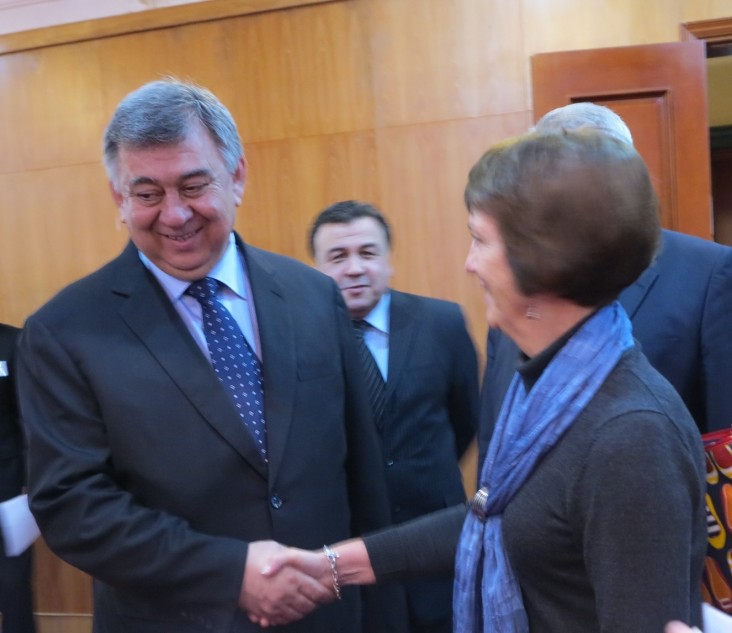
For Immediate Release
Dushanbe, Tajikistan, January 24, 2014 – Ambassador Susan M. Elliott, Deputy Prime Minister Murodali Alimardon, and Minister of Agriculture Qosimjon Qosimov officially opened the new USAID Land Reform and Farm Restructuring Project. Through this project, USAID supports dehkan farm reorganization and strengthens property rights. Ambassador Elliott noted that, “Secure land use rights are fundamental for improving the economic situation of Tajik farmers and increasing food security. Land reform should secure farmers’ rights to their land and encourage investments that will increase farm productivity and profits.”
This three-year $5.5 million project is part of the U.S. Government’s Feed the Future Initiative and will support the advancement of policies and legal developments related to land rights and facilitate the development of land use rights market. In the 12 Feed the Future target districts of Western Khatlon, USAID will support a network of regional legal aid centers (LACs) and land activists to educate farmers on their rights, train local government officials on new land laws and policies, mediate disputes, and advocate on behalf of farmers’ interests in court. The network will report on the status of freedom to farm and provide field-level information to help guide the project’s legislative reform efforts. In order to reach farmers outside the LAC network, the project will publish a monthly newspaper and produce a series of radio and television programs featuring land-related news and articles about farmers defending their rights.
Since 2003, the U.S. Government, through USAID, has been an ardent supporter of land reform, assisting the Government of Tajikistan in strengthening land-related laws and policies, increasing farmers’ awareness about their rights, and helping farmers to protect those rights. Over 150,000 citizens received direct assistance under previous USAID land reform projects. These efforts have included legal consultations, mediation to settle land related disputes, coordination with local governmental authorities, and court resolution of land issues in cases where there was no alternative solution.







Comment
Make a general inquiry or suggest an improvement.